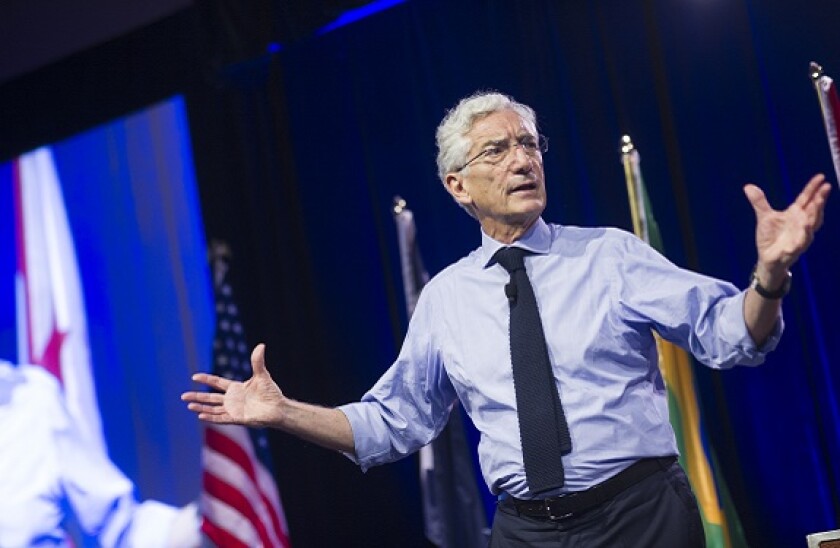“We are at a historic crossroads similar to 1929,” said Cohen, speaking at the GlobalCapital Sustainable and Responsible Capital Markets Virtual Forum on Tuesday. “After 1929, investors sat up and started to realise that they had been investing in companies without proper transparency on the profits they make. In those days every company could pick its own accounting principles and there were no auditors to verify the numbers."
In 1933 after the Wall Street Crash, Cohen said, Generally Accepted Accounting Principles were brought in to give investors realistic and comparable information about companies' financial affairs — which were also audited.
He drew a parallel between that moment and now, when the volume of assets managed according to environmental, social and governance techniques has swelled to many trillions, but this was not producing enough results because investors lacked reliable information.
Cohen said the desire from investors was clearly there — and, now, so was the capacity to accurately analyse the impact a company has on society and the environment.
“We are now at the same crossroads [as in the 1930s] but this time it’s about impact transparency," Cohen said. "The breakthrough we’ve had with technology and big data is that it enables us to measure the impact companies create through their products, employment and operations on people and planets.”
A project at Harvard Business School led by Cohen and Prof George Serafeim has posted online its estimate of the environmental damage caused by 1,800 companies.
This can be subtracted from their profits. After that is done, many companies produce negative value, Cohen said. But what was important as well was the differences. For example, Exxon Mobil's negative value creation was $38bn, but Shell's was only $13bn and BP's $8bn.
This was an example of how pollution and lower value were beginning to be correlated.
Cohen believes the system of impact-weighted accounting is well enough developed to be used. Asked how it was going to be adopted, he said governments needed to mandate its adoption, and he believes this should happen by 2022.
"But governments don’t tend to lead, they tend to follow," he said. The drive and motivation must come from financial markets — investors, in particular. "The investor voice is what is going to get us there," he said.
The Harvard project will soon add the impacts companies create through their products and their employment practices to the accounting system.
Once these impacts make their way into financial accounts, impact-weighted earnings a share may become an important way of valuing companies.
This, as Cohen sees it, will be a universal standard that is constantly refined.
Asked about what he was worried about and what could go wrong in the introduction of impact transparency, Cohen said: “I’m worried about governments taking too long to act... We have the right to know what impact a company is making, and the cost of accounting for impact is a fraction of the environmental damage that is being caused."
Having been a co-founder of Apax Partners in 1972, since 2000 Cohen has been a leader in impact investing. His recently published book, Impact — Reshaping Capitalism to Drive Real Change, discusses impact accounting in detail.
With an optimism rarely seen at ESG conferences, Cohen said of impact-weighted accounts: "It can be brought in and we must have the will to bring it in.”
You can watch Sir Ronald Cohen's interview online for the next 30 days by registering to attend the GlobalCapital Sustainable and Responsible Capital Markets Virtual Forum.

